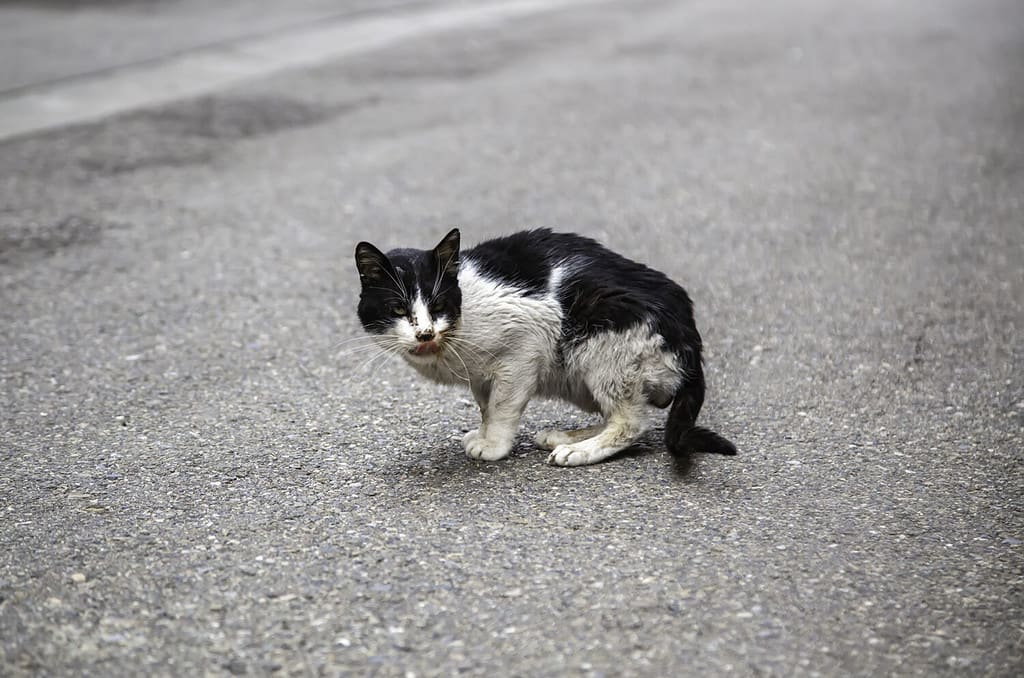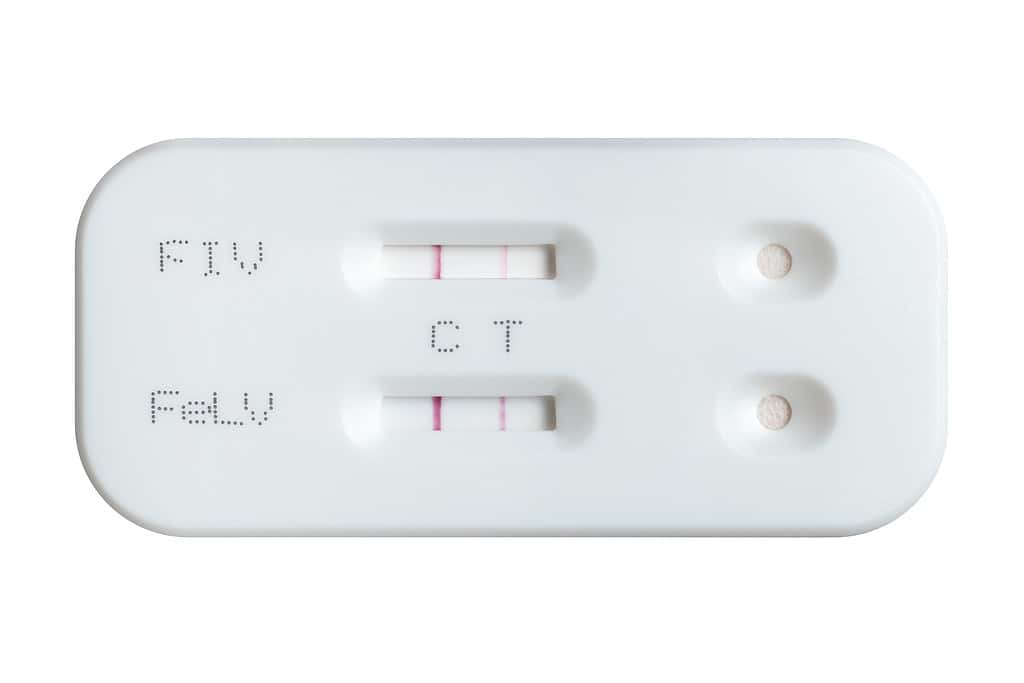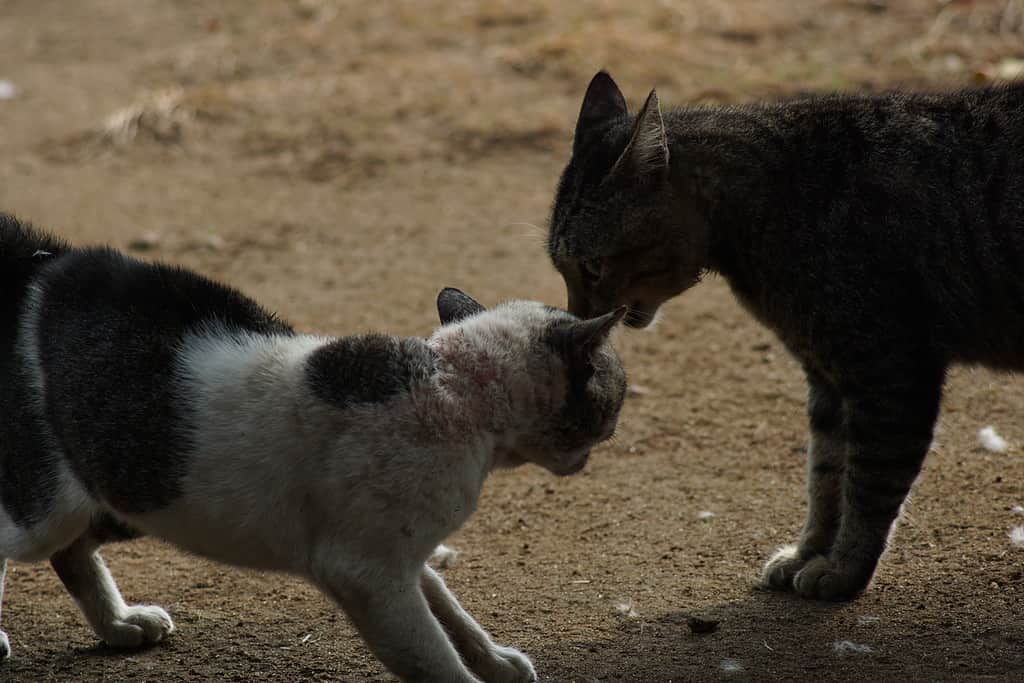Despite our best efforts as caretakers of cats, they still fall victim to numerous health issues, just like we do. Most cat owners/servants would do anything to give their furry best friend immortality. It can be devastating to see your friend suffer in any way. Some viruses cats catch are lifelong issues that may require special vitamins or treatments in order to help them live their best and most comfortable, symptom-free lives with us. In this article, we will dive into what FIV is in cats and if it’s deadly.
What is FIV?

Stray cats left to fend for themselves against other cats are the most frequently infected with FIV.
©Celiafoto/Shutterstock.com
FIV is short for feline immunodeficiency virus. It attacks the immune system of cats much the same way that HIV attacks a person. FIV is one of the most common feline infectious diseases in the world. When the virus attacks a cat’s immune system, it leaves the cat more vulnerable to infections than it would otherwise be. The infected cat sometimes takes years to show the immuno-compromising effects of FIV, though it is transmittable the entire time. Only 1 – 5% of cats infected with the virus show any symptoms throughout their lives. However, there are different strains of FIV, with some being more harmful than others. If a cat shows an ongoing immuno-compromised state, the virus has matured and is then recognized as feline AIDS or acquired immunodeficiency syndrome of cats.
How is FIV Diagnosed?

While at a vet clinic, FIV is typically performed as a combo test blood draw paired with feline leukemia.
©Dmytro Skrypnykov/iStock via Getty Images
In order to diagnose a cat with FIV, antibodies must be present first. If the cat was in a fight and suffered a deep bite wound, it’s possible that it could take as much as eight weeks for the antibodies to show up in their blood. It is important to have your cat combo tested as soon as you acquire them, if it wasn’t already done. If this is a cat you own that has gone outside and been bitten, combo test when the cat goes to the vet for the bite wound but definitely retest if that result was negative in two or three weeks.
If a kitten is born to a mother with FIV, the kitten will likely carry the mother’s antibodies for up to eight weeks after birth. It is important not to test very young kittens because of this. Vets suggest testing kittens at six months old to get valid results. Any kitten under four months old, regardless of the test result, should be tested again at six months of age.
The combo test combines FIV and FeLV (feline leukemia) in one so that two separate blood draws do not have to be performed. Within 15 minutes of testing, the results will be ready. It is possible to have a false positive or false negative, though unlikely.
How Do Cats Catch FIV?

The most common way cats catch FIV is through deep bite wounds from fighting or mating.
©Segoro Adem/iStock via Getty Images
FIV is transmitted through the saliva of infected cats. A cat will not catch FIV from sharing food dishes with an FIV-positive cat. It can only be spread through deep tissue bite wounds that are often seen on stray cats from fights over territory or from mating. Male cats bite females on the back of the neck during mating, and it is spread that way. It may also be sexually transmittable. Though very rare, a cat can also become infected through a positive blood transfusion.
The FIV organism is not able to survive but for a short period of time outside of living cells. It can spread to kittens through the uterus or the mother’s milk. Only 1/4 of kittens born to a FIV-positive mother contract the virus.
Supportive Care for FIV Cats

With many viruses and diseases, there is no cure, but plenty can be done as supportive care that can ensure the infected cat leads a long and normal life. If a cat is having severe issues and is not able to heal, several human HIV medications have proven effective. It is also important that the cat is neutered, if not already, and kept indoors. Male cats who are not neutered tend to roam and fight other cats. After neutering, the cat is much less likely to fight or contract FIV. It’s important to keep FIV-positive cats indoors in case another cat attacks them, or they bite another cat.
It is highly unlikely that a positive FIV cat will attack a housemate and bite deeply. Because of that, it is not likely other cats in your household will become infected with FIV. Plenty of multi-cat households have lived full lives with each other even when one cat is FIV positive.
Feed your FIV-positive cat a well-balanced, high-quality diet, but never include raw food because the pathogens can be dangerous to an FIV cat. Also, make sure to treat any infections or illnesses in the cat immediately. Probiotics and L-lysine can be helpful. Speak with your vet about other immune-boosting supportive care for your best friend or if you have any questions regarding FIV. FIV is not a death sentence and should not be treated as such.
The photo featured at the top of this post is © M-Production/iStock via Getty Images
Thank you for reading! Have some feedback for us? Contact the AZ Animals editorial team.







